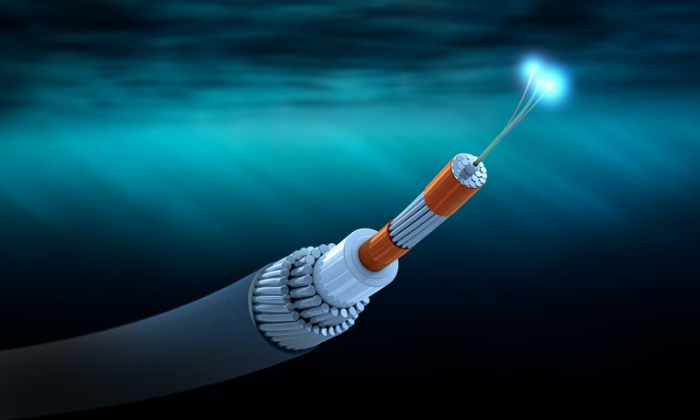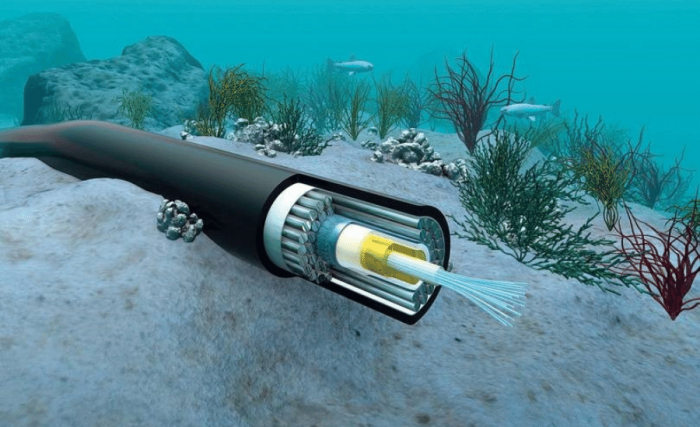Azerbaijan is stepping onto a new stage in exporting not only traditional energy resources, but also renewable green energy to the West. We have started large infrastructure projects. Can the neighbouring countries also benefit from them?
We are primarily talking about our coastal neighbour, Turkmenistan. What is the state of renewable and green energy potential of this country? Can they unlock that potential through the infrastructure offered by Azerbaijan?
Professor Chingiz Ismayilov, Ph.D. in geography, head of Economy and Social Geography Department at Baku State University, said to AzVision.az that the territories on the Caspian coast are generally windswept zones: in the North, West, and East. At the same time, these countries, especially Turkmenistan, enjoy a lot of sunny days throughout the year. The solar radiation is very high in the Garagum Desert, which also means great opportunities to use solar energy. Therefore, Turkmenistan has a vast potential for alternative energy.
‘At the same time, renewable energy will always stay somewhere in the background in countries with sufficient traditional energy sources. However, they are creating an artificial lake, the Altyn Asyr (Golden Age), on the intersection of Balanabad and Tashauz provinces in north Turkmenistan, to the east of the Garabogaz Lake. They will complete fill the lake by 2025. Besides collecting drainage water, they are also developing green energy projects on the site. They envisage collecting solar and wind energy into a power station with a capacity of 10 MW and converting it into electricity.
Turkmenistan has the same wind energy capacity that Azerbaijan possesses. However, if there are 4 million people living on the coastal region in Azerbaijan, Turkmenistan only has a population of 200 thousand on the shores, which means the demand is not that vast. The resource potential, however, is great.’
- Azerbaijan, Georgia, Hungary, and Romania have signed a protocol on building a high-voltage electric cable or corridor. Azerbaijan and Turkmenistan, on the other hand, cooperate in the field of traditional energy. There is the ‘Dostlug’ field. Does this also create a unique opportunity for Turkmenistan to join the project in the future?
‘Like every other country, Turkmenistan, too, is interested in expanding and deepening its economic relations. Not only the oil and gas export but exporting other energy resources is also an alternative cooperation opportunity for Turkmenistan. Let’s look into the matter at hand.
The Trans-Caspian gas pipeline had been discussed for the longest of time. The European Union also supported it. The project was not carried out, however. We must find the reason in the geopolitical interests in the area. Russia and Iran insisted on adding a special clause to the Convention on the legal status of the Caspian Sea under the pretence of ‘ecological problems’ (but of course, the main reasoning was geopolitical interests) that required all Caspian littoral states to agree on constructing any pipeline.
If Russia was implying to a ‘no’ to this project before the Ukrainian war, the refusal will now be voiced openly. Russia supplied 40% of the demand in the European market, whereas the figure has plummeted to 8%. The European market is as good as closed for Russia in terms of gas exports. This means Russia will definitely not allow a new way out for the West.
One may question that a high-voltage power cable is not a gas pipeline and whether it can even cause any ecological problems. The status of the Caspian Sea reads that countries control a 15-kilometer coastal strip. The middle part is considered a common zone, with powerful Russian fleet in place. If an electric cable should run there, who is to guarantee that an ‘accident’ will not occur one day? Who will find the perpetrator and prove their fault? We must understand the dangers that exist.
Not only Russia, but Iran too will oppose it, because it is left out of these projects. At the same time, we have electricity exchange relations with both Russia and Iran. We export both gas and electricity to Iran and receive the same amount of gas and electricity from Iran in Nakhchivan. Azerbaijan also has power lines with Russia. There is a network of sorts. However, we must consider the geopolitical games to ensure the safety of the planned high-voltage power line from Turkmenistan to Azerbaijan within this network.’
- Say, both Russia and Iran agree. Will this project justify itself in terms of profitability and technical demand? How interesting can it be in revenue sharing?
‘We must, of course, make technical and economic calculations to draw up the justification. For example, the preliminary data suggests that the average cost of laying an underwater cable from coastal Georgia to Romania is 2 billion euros. The European countries must certainly act as the investors because the line is installed for them.
Azerbaijan has recently commissioned the thermal power plant (TPP) in Mingachevir, where we have made 60% of the overall investments. I believe we will also pay for the part of the line that will run through our territories, without attracting external loans.
However, the parts that will run through the bottom of the Black Sea will require extra attention from the European countries in terms of both investments and technology, as they are the interested party. We must admit that Azerbaijan does not boast great experience in installing underwater high-voltage electric cables. Europe, on the other hand, does. There are lines running through the bottoms of the Atlantic Ocean and the Mediterranean Sea. The maximum depth in the median part of the Caspian Sea is around 300-500 metres. The main issue depends on the depth and distance, which requires calculations. The Caspian Sea might require twice as less investments compared to the Black Sea, because the environment in the Black Sea below 80 metres is rather aggressive. The cable requires special coatings to prevent corrosion, which of course boosts costs. There are also currents and changes of depth in the Caspian, which must be taken into account. What I want to say is that there are many parameters, which have a say in the amount of the investments required.’

- If Turkmenistan is indeed able to transport renewable energy through Azerbaijan, how will it influence geopolitical relations?
‘Only positively. Cooperation always boosts economic development and the welfare of the population, motivating new jobs. However, the current conflict is long-term, not just mere 1-2 years. I believe (and I am not the only one who does) it will last over 10 years. The conflict has engulfed all areas. This is not only about politics, but also economy, human relations, psychology. The antagonism has caused a large crack in both the West and Russia. The West distrusts Russia, Russia does not trust the West in return. Recovering that trust in economic-political relations requires a long time. Russia must act in line with international relations. Europe, in return, must acknowledge that every country has its own point of view. It would be wrong to measure the entire world with the same yardstick.’
- You mentioned that Turkmenistan was working on alternative energy. So, who will it sell the energy to?
‘I think in the current situation Turkmenistan will not come forward as an initiator. They are certainly interested in this as per their national economic interests. But they will not take the initiative, because it is Europe that needs Turkmenistan’s energy. The country exports 80 billion cubic metres of natural gas annually and provides for a population of 5-6 million with those revenues. So, Turkmenistan does not really have that big of a demand. I will repeat myself in saying that they are interested, but not so much as to show initiative.
The European Union must resolve three important issues such as investment, technology for installing the underwater cable and its own security. If it manages to do so, Turkmenistan will gladly join. Otherwise, it will not get ahead of itself, trying to solve anything.’
Sahil Isgandarov
Sabina Hasanova
More about:
















































